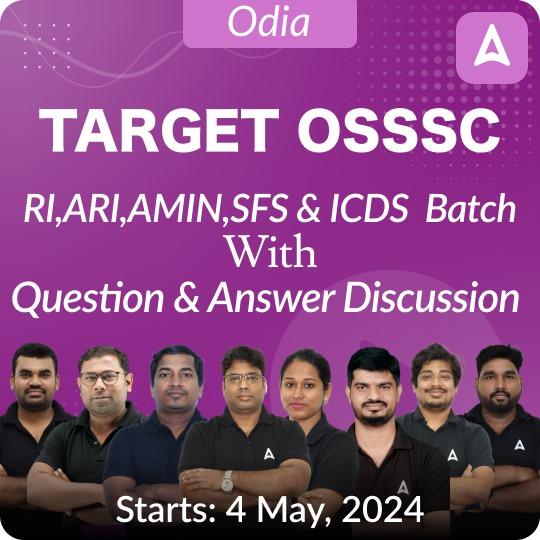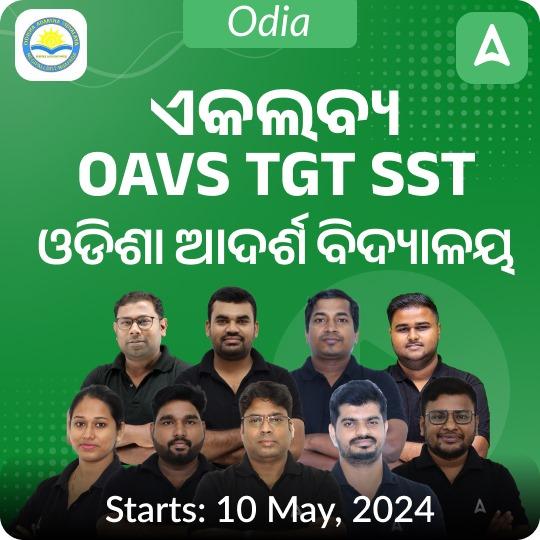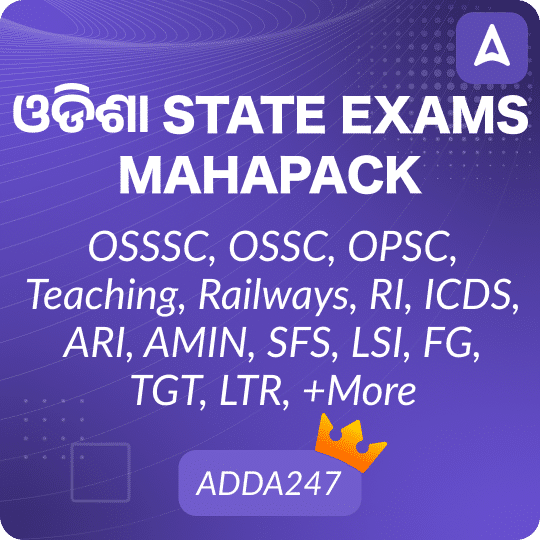As you are aware, in all competitive exams, the “Daily Current Affairs Section” holds significant importance in determining the cutoff scores. Therefore, if you excel in this section, you will have a better chance of achieving higher marks in these exams and securing a spot on the merit list.
Addapedia Odisha – Daily Current Affairs – 24 April 2024
24 April 2024
National and International News
| Glacial Lake Outburst Floods (GLOF) |
Why in news?
- ISRO’s long-term satellite imagery from 1984 to 2023 shows significant changes in glacial lakes in the catchments of Indian Himalayan river basins.
- It provides valuable insights for understanding glacial lake dynamics, which are essential for assessing environmental impacts and developing strategies for Glacial Lake Outburst Floods (GLOF) risk management and climate change adaptation in glacial environments.
About Glacial Lake Outburst Floods (GLOF:
- Glacial Lake Outburst Floods (GLOF) are a phenomenon that occurs when large bodies of water, located in front of, on top of, or beneath a melting glacier, expand.
- These situations become more dangerous due to the fact that glacial lakes are primarily dammed by unstable ice or sediment composed of loose rock and debris.
- If the boundary around these lakes breaks, it can result in massive amounts of water rushing down the mountainside, potentially causing flooding in downstream areas.
|
| Contempt of court |
Why in news?
- The Supreme Court questioned Patanjali Ayurved about the size and cost of its apology published in newspapers.
- Patanjali is facing contempt action from the Supreme Court for publishing misleading advertisements about their ayurvedic products.
- They had violated an undertaking given to the Supreme Court in 2023 to stop these advertisements.
About Contempt of court:
- Contempt of Court is designed to protect judicial institutions from unwarranted criticism and attacks, and to uphold their authority.
- The Indian Constitution’s Article 129 designates the Supreme Court as a court of record with the power to punish for contempt of itself.
- The Contempt of Courts Act, 1971 is the governing law for contempt in India.
- Judges have the authority to impose sanctions, such as imprisonment or fines, on those found guilty of contempt of court.
- Contempt of court is divided into two categories: Civil and Criminal.
- Civil contempt occurs when someone wilfully disobeys a court order or breaches an undertaking given to the court.
- Criminal contempt includes three forms:
- Actions, signs, or words (written or spoken) that “scandalize” or “tend to scandalize” or “lower” or “tends to lower” the authority of any court.
- Actions that prejudice or interfere with any judicial proceeding.
- Actions that interfere with or obstruct the administration of justice.
|
| Safeguard Measures |
Why in news?
- India, along with other nations have criticised the EU for not terminating its safeguard measure on imports of certain steel products after a review.
- Most of these countries argued that the EU’s safeguard duty was inconsistent with WTO rules.
About Safeguard Measures:
- Safeguard measures are emergency actions introduced by a country under the World Trade Organization (WTO) Agreement on Safeguards.
- These measures are taken to protect a specific domestic industry from an increase in imports of any product which is causing, or threatening to cause, serious injury.
- Safeguard measures can take the form of suspension of concessions or obligations, and can consist of quantitative import restrictions or duty increases to higher than bound rates.
- They are one of three types of contingent trade protection measures available to WTO members, the other two being anti-dumping and countervailing measures.
Think:
- Know about Anti-dumping and Countervailing measures.
|
| Rashtriya Arogya Nidhi (RAN) scheme |
Why in news?
- The Delhi High Court has instituted a case regarding the grant of financial assistance under the Centre’s Rashtriya Arogya Nidhi (RAN) scheme.
- The court observed that the threshold income to claim benefit under this scheme is prima facie “extremely low”.
Key points:
- Under the new umbrella scheme of RAN, the threshold of monthly income for benefit is ₹1,571 for rural and ₹1,605 for urban areas.
- The annual income of the applicant is ₹96,000.
About Rashtriya Arogya Nidhi (RAN) scheme:
- The Rashtriya Arogya Nidhi (RAN) is a scheme under the Ministry of Health and Family Welfare in India.
- The RAN is a centrally sponsored scheme.
- It was set up to provide financial assistance to patients living below the poverty line.
- It is designed to help those suffering from major life-threatening diseases receive medical treatment at any of the super specialty Government hospitals or institutes.
- The scheme provides one-time financial assistance to poor patients living below State/UT wise threshold poverty line and suffering from life-threatening diseases relating to heart, kidney, liver, cancer, etc.
|
| Schengen visa |
Why in news?
- Indian nationals can now be issued long-term multi-entry Schengen visas valid for two years.
- The European Union has announced this new visa ‘cascade’ regime.
About Schengen visa:
- The Schengen Visa is a permit that allows one to enter and travel freely within the Schengen Area, which comprises 29 European countries.
- It’s primarily for short stays up to 90 days within a 180-day period for tourism or business purposes.
- The visa can be obtained in the form of a single-entry visa, which allows the holder to enter the Schengen area once, or a multiple-entry visa.
|
| Copyright © by Adda247
All rights are reserved. No part of this document may be reproduced, stored in a retrieval system or transmitted in any form or by any means, electronic, mechanical, photocopying, recording or otherwise, without prior permission of Adda247. |














